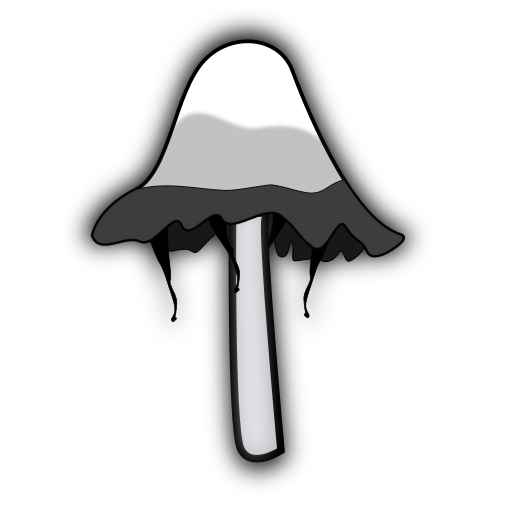I have some pink spawn which was being expanded out in jars of rye berries and popcorn kernels. There’s been good growth and since a couple weeks ago the jar appeared to be completely colonized (at which time I left one jar sitting and moved another jar to a couple fruiting bags). It’s been sitting on the basement floor since then, but I’ve noticed some pink coloration that seems to have gone throughout the jar, and there seems to be a bit of the pink also in the fruiting bags.
I prepared some jars of blue oyster spawn at the same time, using the same batch of rye and popcorn, and those jars are still snow white. This has me wondering, could I have possibly gotten contamination ONLY in the pink oyster jars while all of the blue oyster jars somehow escaped contamination? Or is this pink color natural for pink oysters? It just seems like an awful big coincidence that only the pink oysters would get contaminated when everything was prepped together in the still-air box and there was definitely cross-exposure between the jars.
Since this is my first batch of oysters I’m just not sure what I should be expecting.



Pink oysters are one of the few species that have colored mycelium. It is pinkish-beige.
But if it’s brightly pink, it might be lipstick mold. Then toss it, it might be super toxic to you!
I can send you a picture of my GS tomorrow when the lightning is better if you want :)
Guenther what are the other species you know of with colored mycelium? Only one I know is Pholiota adiposa which can orange/brown
Honestly, I have no clue… There aren’t as many cultivated mushrooms out there (relatively speaking), and for wild mushrooms I can’t speak since you usually don’t dig them up.
The only ones I know which myc has a color are pink oysters (orange-pinkish) and sometimes psilocybe, which can bruise blue.
That would be awesome to see your pic! Yeah the blue-green mold is pretty common here, I lost a batch of button mushrooms to it recently, but I’ve never seen pink mold here although I know the red stuff can be pretty toxic. This pink is kind of like a strawberry milk pink, maybe leaning more towards an orangish tint(?), and it does seem to be showing up in the places where the mycelium is the thickest which is why I even considered asking if perhaps this might be normal.
Meanwhile one of my fruiting bags of blue oysters is getting very happy, I might be able to cut it open in another week or two. Getting excited about that, as it will be my very first harvest of mushrooms.
Yeah, I’ve looked up and the only jar left isn’t advanced enough to see anything, sorry!
But the last jars I’ve had looked exactly like you described: like strawberry milk, but a bit more orange. Totally fine.
Here are a few images I’ve found online, that match my description: https://www.milkwood.net/2012/05/14/pink-oyster-mushrooms-happy-mothers-day/
FYI I updated the original post with a pic of the jar, plus a link to the full-sized pic.
Thanks! The myc looks totally fine! :)
Yesterday, when I looked up mine, it looked white, but it will discolor soon. The pink oysters produce pink metabolites and knots when more mature, especially when contained, when moisture can build up.
Yeah I’m getting a bit concerned about the moisture as well. These last three jars were set aside to use for the next run of fruiting bags, but they’re getting a lot of moisture built up inside the jar. I was going to put them in the fridge when they reached a good point but someone told me that was a bad idea, and that was a couple weeks ago. I don’t know how long they can sit at room temperature but it’s probably going to be another month before I’m ready to use them.
Good to know about the color, though! I’ve noticed the pink oysters seem to take a lot longer to colonize than the blue oysters do so I’m expecting my fruiting bags to take twice as long as the blues I set up at the same time (and one of the blues is going absolutely crazy!).
I wouldn’t say they take longer. Oysters in general don’t take long and colonize rapidly.
My GS-jars for example took less than a week until I put them to substrate.
It mostly depends on the genetics, more specifically, the senescense. If the culture you got is a bit older, it takes longer to grow and is more prone to contam. This time I got lucky, but often, many growers “cut” their LCs, which results in too many cell divisions.
That’s why we work with culture slants. I don’t trust my supplier enough to give me fresh specimens, and therefore I try to get some of them fruiting, take spore prints to reset the genetics, and then grow from them. When I’ve done that, I back up the culture in my fridge until I need to use it again.
This guarantees me to get super low P-values, resulting in strong immunity and growth, which I strongly need, since I grow in unsterile environments.
Also, if something goes horribly wrong, I always have backups. I learned from my past mistakes…
I experimented with starting a culture of button mushrooms from stems. It worked well until I transferred it to the grain jars, but I’m planning to try and do the same with my oysters once I get the first batch. Gotta know how to keep them going!
Can you describe your process? Did you clone the stems to agar first or did you put them directly to spawn?